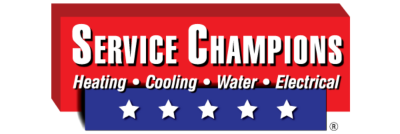Why You Should Clean Heat Pump Condenser Coils

May 26, 2017
Should you regularly clean your HVAC coils? The short answer is YES! Deep clean your indoor and outdoor coils no less than once a year for the best results this summer.
While it’s best to schedule professional HVAC maintenance and cleanings twice a year, we recommend more frequent condenser coil cleanings. Luckily, cleaning your outdoor condenser coils is something you can do on your own (just be extremely careful!).
Warning: Leave evaporator coil cleanings to the professionals. Accessing and cleaning these coils is complicated and can be very expensive to replace.
Your outdoor unit needs extra attention because it is exposed to the elements 24/7. Indoor evaporator coils are exposed to all of the dust and dirt inside the building, but outdoor coils need to deal with added dirt, leaves, grass clippings, pollen, storm debris, soot, and other contaminants.
Homeowners who regularly check and clean their condenser coils experience many noticeable benefits. If you’re looking to decrease your utility bills while increasing energy efficiency and indoor comfort, a good coil cleaning will do the trick.
However, if you aren’t familiar with the working parts of your HVAC system, this may all sound Greek to you.
Don’t be afraid to ask: What are condenser coils?
You don’t know that you should be cleaning something that you don’t know exists. Most residential air conditioning systems are “split systems,” using an indoor coil and outdoor coil to cool your home.
The condenser coil is also known as the “outdoor coil” because it is located in the HVAC box/cabinet located on the side of your building. It is vital to the functioning and efficiency of your heating and cooling system.
The indoor coil (evaporator) is responsible for absorbing heat using cold refrigerant from your indoor environment (warm return air), while the outdoor coil (condenser) is responsible for dispensing that heat to the outdoor environment. With the help of a powerful fan, the outdoor air cools the hot refrigerant gas, turning it from a gas to a liquid.
The cleaner the condenser coil, the more effective the heat transfer. Since the outdoor unit is exposed to elements, it requires more frequent cleanings. When your outdoor coil is clogged with leaves, dirt, grass clippings, and grime, the fan has to work harder and longer to dispel the heat.
Click here for more information on how the air conditioning and refrigerant process works.
Top 3 Consequences of Dirty Condenser Coils
- Higher Energy Bills – The efficiency of your heat pump depends on multiple factors, however, cleanliness is one of the most important. When your coils are clogged and dirty, the system has to run longer and harder to reach the desired temperature. If you want lower energy bills, make sure you regularly inspect and clean your HVAC coils.
- More Repairs – Since dirty coils cause your system to run longer and harder, it follows that your system components will wear out faster. Annual professional coil cleanings reduce the need for repairs. Regular cleanings, professional tune-ups, and monthly filter changes (you can do this part yourself!) are also part of Preventative Maintenance 101.
- Shortened Lifespans – Over time, the increased demand on your system’s components will reduce the expected lifespan of the unit. By ignoring condenser and evaporator coil cleanings, you’ll find yourself spending a lot of money on a new HVAC system sooner rather than later. Regular HVAC maintenance is the best way to extend the lifespan of your HVAC system.
In essence, dirty HVAC coils cause your system to work harder and run hotter. This increases your electrical usage and operating costs. Additionally, your system components will wear out faster, causing more frequent breakdowns.
What We Know: Condenser Coil Facts & Statistics
Heat pump coil cleanings protect your HVAC system and your bottom line. But where’s the proof?
Stats and Facts on Dirty Condenser Coils:
As reported by Southern California Edison (SCE), dirty condenser coils:
- Degrade cooling capacity by as much as 40%
- Increase condenser fan by as much as 30%
- Increase compressor power by as much as 70%
- Reduce energy efficiency (EER) by as much as 60%
- Increase supply air temperature by about 5°F
According to the US Department of Energy, “a dirty condenser coil can increase compressor energy consumption by 30%.” With this increase in energy consumption comes an increase in supply air temperature, by around 5 degrees Fahrenheit.
Other studies, including one from the American Society of Heating, Refrigerating and Air Conditioning Engineers (ASHRAE), prove that regular coil cleanings (inside and outside) will improve energy efficiency and IAQ performance by 10-15%.
Professional Coil Cleanings
Yes, there are ways to perform coil cleanings by yourself, but unexpected accidents and system damage can occur. It’s best to work with the professionals at Service Champions.
As part of Service Champions’ Maintenance Checklist, one of our professional technicians will: inspect and clean indoor evaporator coil, inspect and clean outdoor condenser coil, remove debris, replace the air filter, and much more.
In order to facilitate professional HVAC maintenance and coil cleanings, we recommend:
- Clear the area around your indoor and outdoor units. There should be a minimum 2-foot clearance around the entire outdoor condenser unit and indoor air handler. This is a good rule to follow year-round in order to maximize airflow.
- Clear a path to the unit. Trim back hedges and remove large pieces of debris.
- Schedule maintenance early. Don’t wait until the hottest day of the year to make a call. HVAC technicians will likely be very busy when temperatures are extremely high or low.
Service Champions is known for trustworthy, on-time heating and air conditioning service throughout the East Bay, South Bay, and Sacramento areas.
We offer professional maintenance, tune-ups, and seasonal cleanings as part of our comprehensive HVAC maintenance plan and services.
If you have any questions or concerns, don’t hesitate to contact us.
